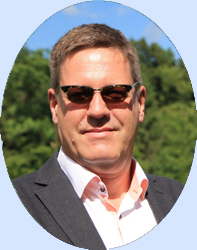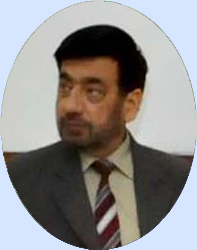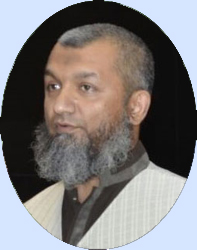IEEC 2017 - About Keynotes and Abstract of Their Talks
 Dr. Ted JohanssonDocent, Adjunct Professor,Integrated Circuits and Systems Dept. of Electrical Engineering Linköping University, Sweden |
About the TalkTitle : The 28 nm CMOS Power Amplifier28 nm CMOS is becoming the workhorse for radio frequency and mixed-signal integrated circuits for consumer products. What can you actually do when the supply voltage of the normal transistors is limited to 0.9 V? Why is Moore?s law not helping us and is even Moore?s law still alive? In this talk, I will discuss the challenges related to the design of integrated very linear power amplifiers for high-data rate wireless communications (1-6 GHz, in particular WLAN) with peak power up to 30 dBm for full radio integration using commercial 28 nm foundry processes. About the SpeakerTed Johansson was born on September 20, 1959. He received the M.Sc. degree in Applied Physics and Electrical Engineering in 1985, and the Dr. Tech. and Ph.D. degrees in Electronic Devices from Linköping University, Sweden, in 1993 and 1998, respectively. In 2015, he became Docent, also at Linköping University. From 1985 to 1989, he was with the Swedish Institute of Microwave Technology, Stockholm, conducting research in the area of MOS process technology. He joined Ericsson Components AB, Kista, Sweden, in 1989 and worked with development of RF power transistors for cellular base stations for almost ten years. His interest then shifted into RF IC technologies, mainly SiGe bipolar and BiCMOS, and integrated power amplifiers for wireless handsets. At Infineon Technologies Sweden AB, during 2002-2007, he divided his attention between research on SOI for BiCMOS, technology strategy for future RFIC processes, and competitor technology analysis. In 2005, the focus again became power amplifiers for wireless applications, mainly for cordless phones and WLAN. Between 2008 and 2011, he was with Huawei Technologies Sweden AB as a full-time consultant working on R&D for cellular basestations including integrated PAs, LNAs, future radio architectures, and components technologies. Since 2009, he is Adjunct Professor in the Integrated Circuits and Systems Group at Linköping University, Sweden. He has published more than 70 journal and conference peer-reviewed papers, one book chapter about SiGe devices, numerous texts in magazines, applications notes, and holds 40 patents. Ted is an IEEE Senior Member, former chair and currently vice chair of IEEE Sweden Solid-State Circuits/Circuits & System Joint Chapter, and also former vice chair of IEEE Sweden Electron Device Society. Member of European Microwave Associations (EuMA). Member and former board member of Svenska Elektro- och Dataingenjörers Riksförening (SER). |
 Dr. Tahir IzharProfessor & Chairman,Dept. of Electircal Engineering University of Engineering & Technology, Lahore. |
About the TalkTitle: Energy Efficiency and Saving Opportunities in Industrial and other Organizations.Most of the organizations in the world are implementing energy management schemes. For example, in Germany, industrial companies are required to provide the ISO 50001- certificate to assure benefits through the renewable energy law. Energy costs can represent up to 10% of the production costs of an industrial company (in emerging countries even higher), while fuel/power costs are increasing continuously. A supplier sometimes is required to provide a certificate to meet the client’s business criteria. Energy efficiency is a marketable attribute of an organization’s image towards the public. One of the major benefits for overall economy of the country is the decrease in energy intensity (kWh per GDP) which helps to stimulate domestic and export economy. Another main benefit is that it will slow down the energy consumption increase resulting reduced stress on new energy generation. It will also result in GHG emission reduction. The awareness of energy efficiency will trickle down from organizations to people creating of household efficiency market. The organizations will have savings of cost for operation (energy) and maintenance, financial savings Increased competitiveness, Increased reliability of (auxiliary) processes and operations, Positive effect on productivity and competitiveness. It will provide increased security of energy supply, reduced risk in the case of energy price increase. There will be a great impact on the environment resulting less waste, waste heat, emissions, wastewater and exhaust gases. Most industrial enterprises that have implemented Energy Management System achieved average annual energy intensity reductions of 2-3 % .For companies new to energy management, savings during the first 2 years are 10-20 %. Average organization-wide energy savings in first 1-2 years range from 5 % to 15 %, with little or no capital investments. This presentation will address the importance of energy management systems and explore the opportunities for energy saving in industrial and other organizations in Pakistan. The importance of energy performance indicators will be discussed. These performance indicators can be compared with the international benchmarks to find the energy saving opportunity gaps. About the SpeakerProf. Dr. Tahir Izhar is currently engaged as Chairman and Professor Faculty of Electrical Engineering at University of Engineering and Technology, (UET Lahore, Pakistan) which is a reputed institute in the field of Engineering within the county and across the World and is able to work as an Executive position. His research interests include DC-DC converters, AC/DC converters, Inverters, DC-AC drives, Electrical machine design. |
 Dr. Uvais QidwaiAssociate Professor,Dept. of Computer Science & Engineering Qatar University |
About the TalkTitle: Soft Computing in Healthcare: Some recent findingsAbout the SpeakerDr. Uvais Qidwai received his Ph.D. (EE) from University of Massachusetts, USA, in 2001. He is currently associated with the Department of Computer Science & Engineering at Qatar University. His areas of research interest are Signal and Image Processing, Robotics, Instrumentation, and Assistive technology development. Dr. Uvais Qidwai has an important Governmental projects background in his work. His non-Governmental projects are spread around the world, in Qatar, USA, Saudi Arabia, UAE, Malaysia, and Pakistan. Many of his projects are dedicated or related to robotics and AT devices, such as sssistive wheelchairs, muscular movement detection for devices control, avatar robots, wearable healthcare devices, a.o. He has presented and published over 130 research scientific papers in reputable conferences and journals. Dr. Uvais Qidwai is passionate about studying the performance enhancement in children with ASD by using robotic toys. He has coordinated studies on this subject in Qatar, with Shafallah Center for Special Needs, Step-by-Step School, Al-Awsaj Academy, and College of Education in Qatar. |